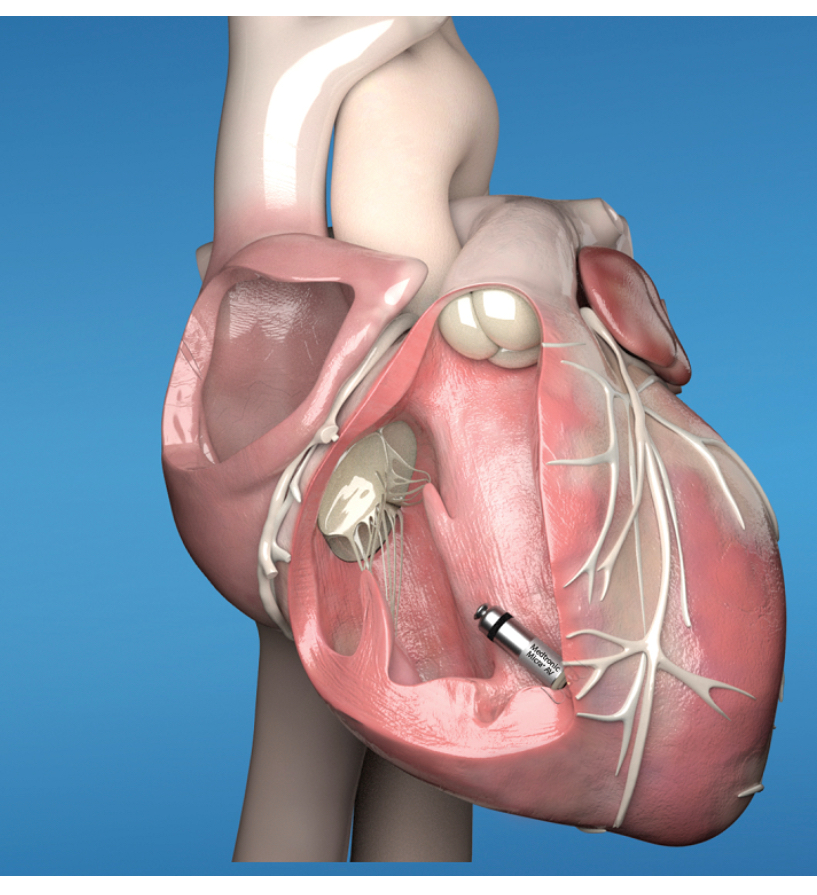NYU Winthrop Hospital today announced that in one of the first-ever procedures of its kind, physicians successfully implanted into a patient a new generation of leadless pacemakers. This new cardiac pacemaker, called the Micra AV, was recently approved by the FDA in late January 2020.
A cardiac pacemaker is a small device placed inside the heart or chest to help control abnormal heart rhythms, using electrical pulses to prompt the heart to beat at a normal rate. The new Micra AV provides electrical pulses that coordinate the top and bottom chambers of the heart – the atrium and ventricle – to beat in sync, resulting in a significant advantage over current leadless pacemakers that do not provide AV synchrony.
The new device is implanted non-surgically—through a sheath placed in the leg—rather than requiring chest surgery, as is often the case with traditional pacemakers. NYU Langone’s Heart Rhythm Center in New York City led the clinical trials that helped pave the way for this important innovation in cardiac pacing.
“This revolutionary cardiac technology will provide patients benefits far beyond that of contemporary pacemakers—and without requiring surgery,” said Dr. Joseph Germano, director of cardiac electrophysiology at NYU Winthrop Hospital, who performed the Micra AV procedure at the hospital. “This new FDA-approved implant is minimally invasive, is only the size of a vitamin placed in the heart, and requires no wire leads that may be prone to malfunction as is the case with traditional pacemakers. This implant is among one of the most important cardiac medical advancements in recent years.”
Pacemakers are used to treat conditions such as arrhythmias, when the heart beats too fast, too slow or with an irregular rhythm that compromises the heart’s inability to pump enough blood to the body.
Traditional pacemakers require surgery to create a pocket in the upper chest for a battery with wire leads into the heart. The Micra AV, instead, is a leadless pacemaker implanted through a sheath in the leg and fed up to the heart, where it is placed. Studies have shown that the Micra AV results in a 63 percent reduction in major complications compared to traditional pacemakers—especially complications such as broken wires.
NYU Winthrop’s first-ever patient was an 89-year-old woman.
Dr. Michael Spinelli, associate director of Cardiac Electrophysiology at NYU Winthrop Hospital, added that “the trials led by NYU Langone Health illustrate one of the most important missions of top-tier medical institutions, delivering cutting-edge ‘bench-to-bedside’ technology that changes the paradigm of healthcare delivery and improves the quality of patient care.”
Micra AV, produced by Medtronic, detects the mechanical movement of a beat in one chamber of the heart—the atrium—and then paces another chamber where the Micra AV device is implanted—the ventricle—so the atrium and ventricle beat in synchrony.
Dr. Larry Chinitz, Director of Cardiac Electrophysiology at the Heart Rhythm Center at NYU Langone Health, led the MARVEL 2 clinical study, which led to the FDA approval of the Micra AV.
Submitted by NYU Winthrop Hospital



